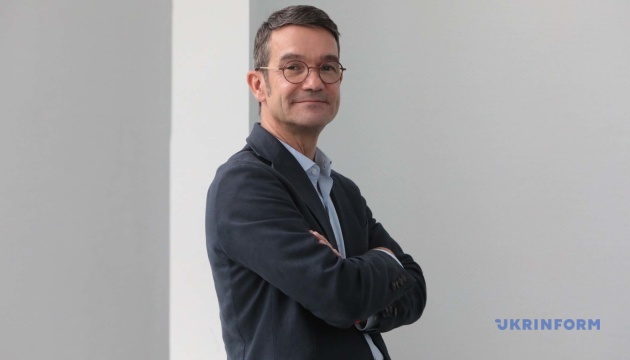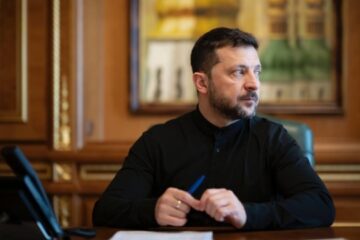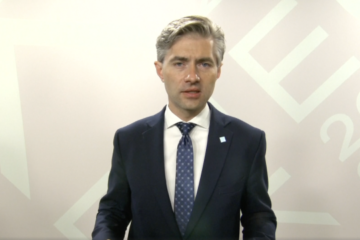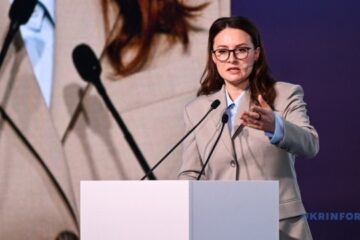Following the visit to Kyiv by French Foreign Minister Jean-Noel Barrot, it was announced that Ukraine and France are strengthening their defense cooperation—particularly in the areas of air defense, drones, and missiles—and are preparing to sign a strategic partnership agreement. However, these are far from the only areas in which the two countries are deepening their cooperation.
Gregoire Dattee is an expert in audit, accounting, and consulting with more than 25 years of experience. For over 17 of those years, he has been working in Ukraine, where he leads the Ukrainian office of the global organisation Forvis Mazars, which provides audit, tax, and advisory services. In addition, Dattee serves as a French Trade Advisor (CCEF) and is a board member of the French Chamber of Commerce and Industry in Ukraine (CCIFU). In an interview with Ukrinform, he spoke about doing business during the full-scale war, how “Made in Ukraine” is becoming a global brand, and why he is encouraging investors to take part in Ukraine’s recovery right now.
ALL OUR WESTERN CLIENTS CONTINUE DOING BUSINESS IN UKRAINE
– Gregoire, you have been doing business in Ukraine for over 17 years. What was the main driver that led you to enter the Ukrainian audit market at that time?
–Before coming to Ukraine, I had worked in France for over 11 years for a global company providing independent financial audits to ensure fairness and transparency in business in more than 100 countries. We offer audit services, all types of tax services, some legal support, and outsourced accounting services, including automation and optimization of finance functions.
I wanted to gain international experience. So, in 2008, it was the right moment in my career to go abroad, and among several proposals, I chose Ukraine. I was interested in building a bridge between Ukraine and Western Europe. And that’s exactly what we’ve done with our business. We have mostly served foreign investors in Ukraine, acting as a bridge between local teams and group finance divisions to explain potential differences.
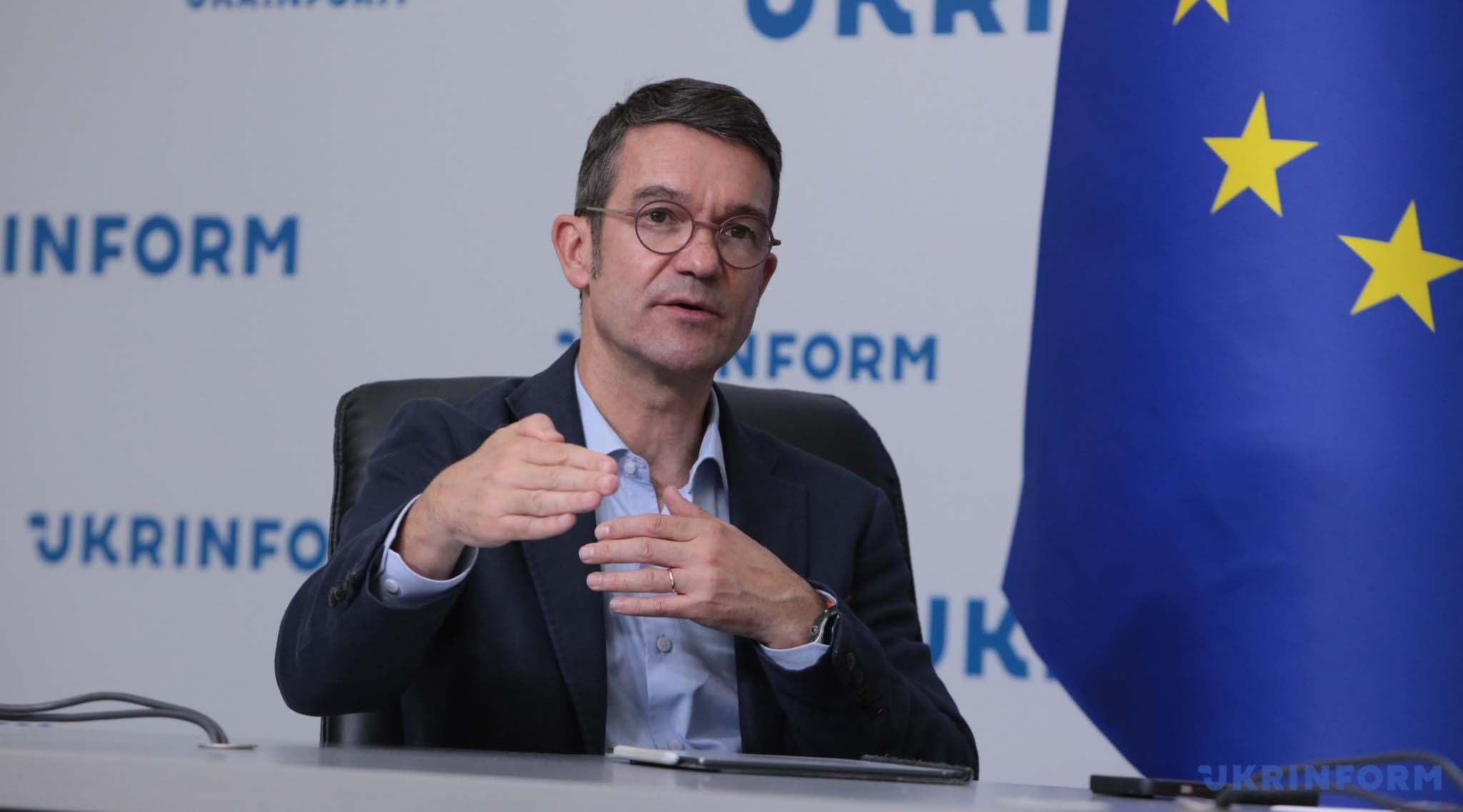
– Then the full-scale Russian offensive began. What challenges did this war bring to your business in particular?
– Like all businesses in Ukraine, we were caught off guard by the war and had to return to the basics of crisis management: first, ensuring the safety of our people; second, maintaining business continuity for our clients; and third, communicating clearly about our situation and needs. Overall, we managed to continue our operations. We had a strong crisis team handling immediate needs while also quickly beginning to plan for the longer term. I remember clearly that on February 24, 2022, some of our teammates instinctively made early salary payments to ensure clients’ staff would be paid that month. That same afternoon, they were already in Obolon (a district in Kyiv) helping to build barricades to protect the city. It was truly remarkable, and I’m very proud of them.
– How has the war affected your key areas of activity—audit, consulting, and tax services? Have companies’ requests for these services changed during wartime?
– The key has been to adapt very quickly. The war has accelerated a trend we already saw globally with new technologies. In Ukraine, we had no choice but to adopt these changes faster, and we’ve adapted our services accordingly. It depends on the type of service: for example, accounting and payroll never stopped, while advisory work was more difficult at the beginning. We are quite diversified, which allowed us to continue operating.
One important point: none of our clients—mostly foreign investors—left Ukraine. They all stayed. And now, they are continuing to invest because they better understand what it means to work in Ukraine. They see the potential and the opportunities to invest and prepare for reconstruction now.
UKRAINE’S RECOVERY HAS ALREADY BEGUN – THE TIME TO ACT IS NOW
– You attended the Ukraine Recovery Conference in Rome on July 10–11, which showed that despite the full-scale war, recovery projects are actively being discussed. In your opinion, which sectors are most promising or already attracting investor interest?
– We see many crucial sectors where much needs to be done together: energy, infrastructure, and of course, defense. We have a lot to learn from Ukraine in these areas. Agriculture continues to be important. I must also mention healthcare, which is absolutely vital and will face many urgent needs.
Building a bridge between Ukraine and Western Europe is essential right now
Let me give an example of a recent investment: the acquisition of Ukrainian Lifecell and Datagroup by Xavier Niel/NJJ, a leading French group operating in mobile and internet services. Finalized in 2024, this was an investment up to $1.5 billion. It shows that people are ready to invest significant sums in Ukraine.
It’s a bit more difficult to attract companies with no prior experience in Ukraine, but now is the time to prepare for investment. That’s why I’m working to bridge the perception gap between those who have experience in Ukraine and those who don’t. Being a bridge between Ukraine and Western Europe is more important than ever. I would say that Ukraine’s reconstruction has already begun. It’s crucial to start planning projects now, as preparation takes time. Building local partnerships in Ukraine is essential—so the time to act is now.
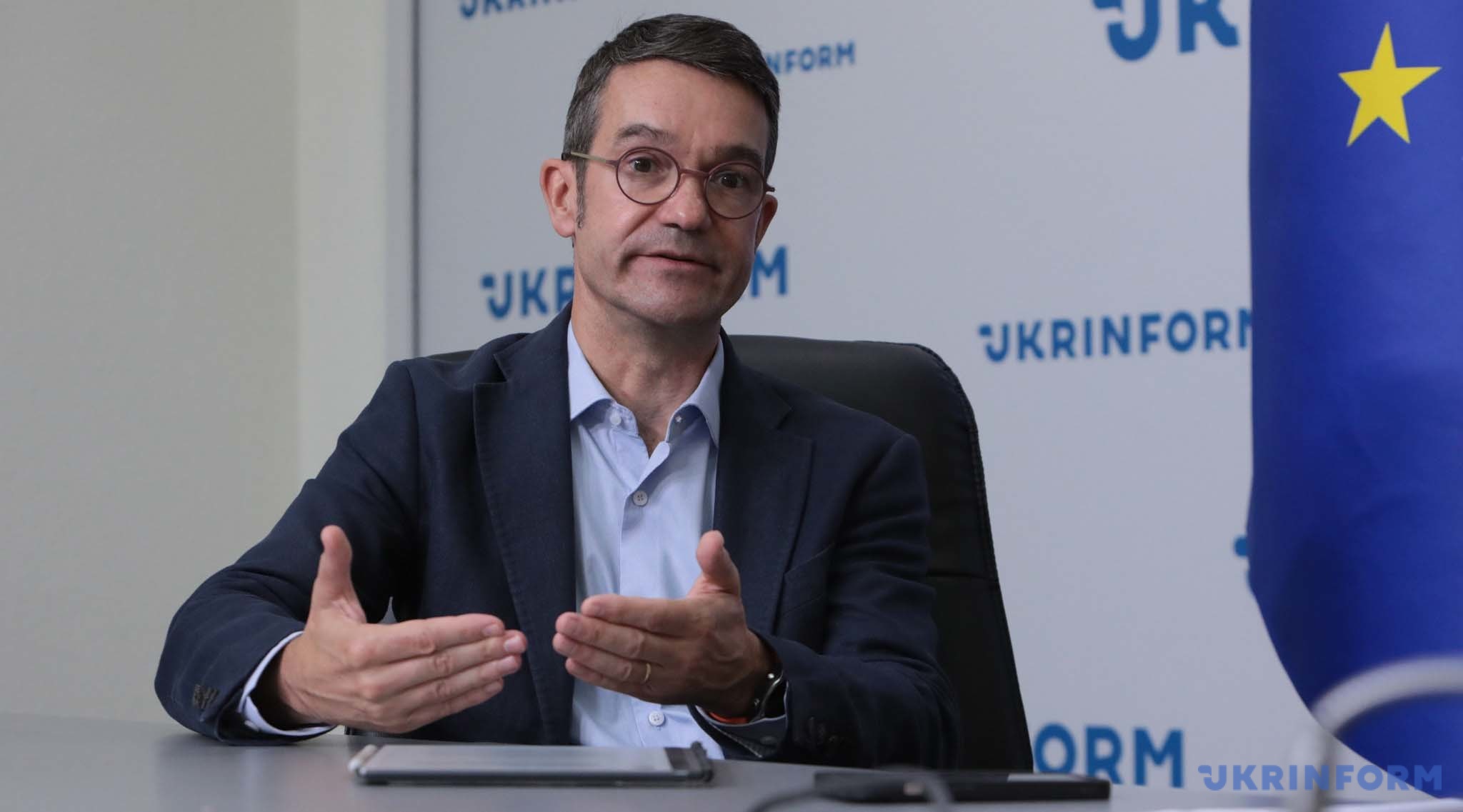
– What are the main concerns of those still hesitant to invest in Ukraine?
– First, it’s a matter of perception. When you’re in France, Germany, or Italy and watch the news about Ukraine, the focus is mostly on the frontlines. It’s hard for people to imagine that life continues in Kyiv and many other cities—30 million people are living, working, and eating every day. That’s the first gap in understanding.
Second, there’s the risk of investing in a country at war, which is understandable, especially for capital-intensive investments. However, this risk can be mitigated, and there are now more tools available to insure and protect investments.
Another concern is corruption, which is perceived differently from the outside. For example, I had to explain what happened last week (on July 22, the Verkhovna Rada passed and Volodymyr Zelensky signed into law the bill reducing the powers of the National Anti-Corruption Bureau of Ukraine (NABU) and Specialized Anti-Corruption Prosecutor’s Office (SAPO)). People often think the situation is worse than it really is. The spontaneous protests we saw in Ukraine are a very positive sign of democracy protecting the country from negative changes. But of course, we must continue to monitor the situation carefully. That’s why we must keep playing this bridging role and maintain open communication.
– And what are the advantages of investing now in Ukraine’s recovery?
– There are many—truly many. This isn’t a recent conviction for me. I’ve been in Ukraine for many years. Geographically, Ukraine is a crossroads, with access to the sea in the south, as well as in the north via its strategic transport position and routes. It is extremely rich in natural resources. From the beginning, I was impressed by the high level of education. The IT and engineering sectors, for example, are very strong.
Another thing I noticed early on is how quickly people can learn, adapt, and change their mindset. Most people have a real entrepreneurial spirit and a collaborative approach.
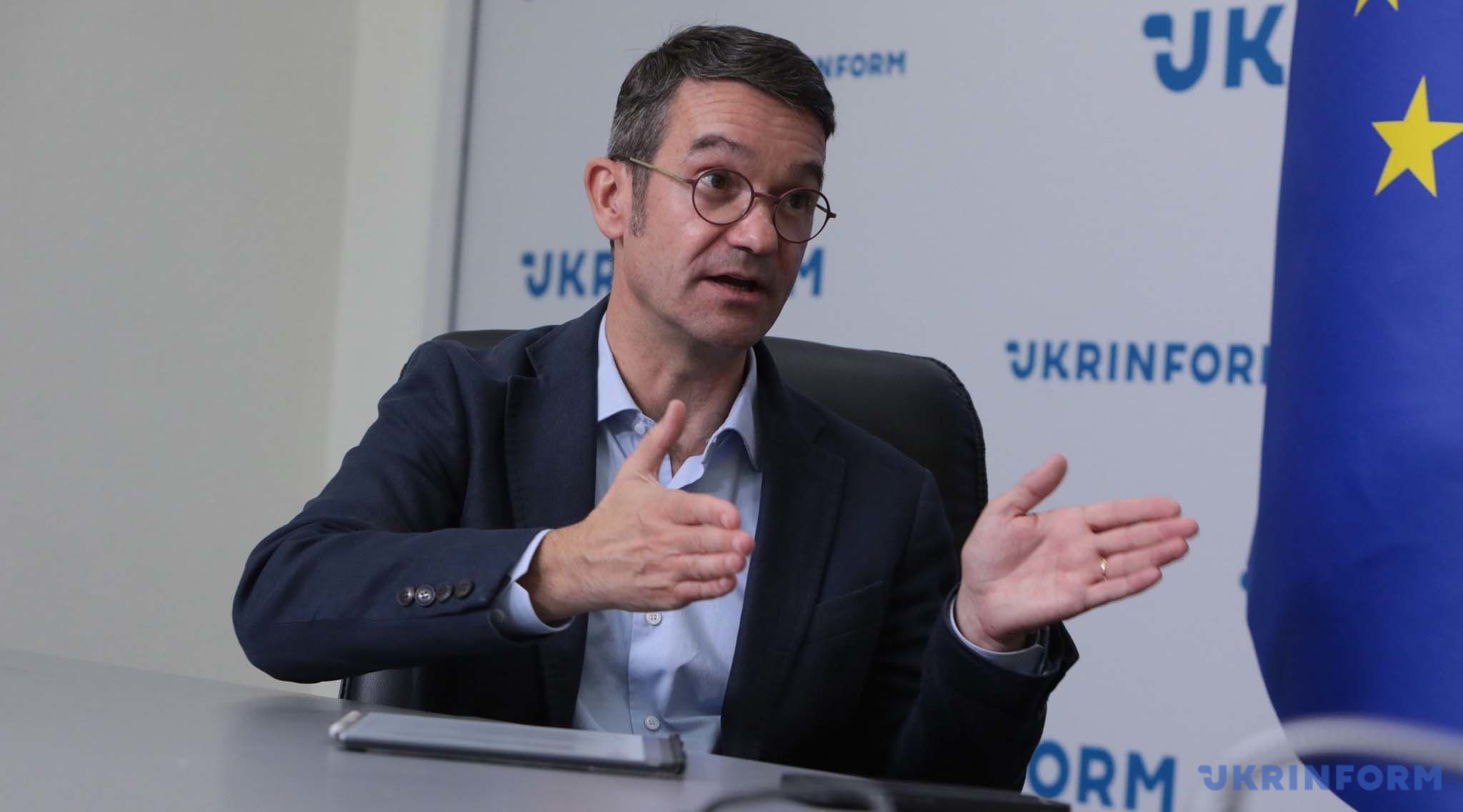
WE ARE WITNESSING A RISE IN UKRAINIAN KNOW-HOW AND EXPERTISE
– As a board member of the French Chamber of Commerce and a French foreign trade advisor, could you comment on bilateral business between France and Ukraine? Which sectors are most promising, and how do recent intergovernmental agreements support them?
– The French Chamber (CCIFU) is very active in maintaining relationships and fostering communication between Ukraine and the French business community, with the goal of attracting potential investors and showcasing opportunities in Ukraine. The CCIFU is considered the largest foreign employer in Ukraine, with approximately 25,000–30,000 employees. We are present in agriculture, banking—with two major French banks operating in Ukraine—and all major sectors.
The French Chamber of Commerce is the largest foreign employer in Ukraine, with approximately 25,000-30,000 employees
France is making significant efforts, with many agreements signed in the healthcare sector. Last year, a €200 million guarantee fund supported 19 projects in infrastructure, energy, construction, and healthcare. I understand a second edition of this fund is being prepared for next year.
There is financial and economic support from the government, but the goal is to continue motivating and inspiring private businesses to get involved, as reconstruction will require technical solutions from the private sector.
But for me, a bridge is not just one-way. It’s not only about foreign investment coming into Ukraine. It is also the other way. I’m impressed by how the “Made in Ukraine” brand is gaining strength and recognition abroad.
Unlike ten years ago, people in Europe now clearly associate Ukraine with strong values. I also see growing pride among Ukrainians in sharing their products, skills, and innovations—from IT to fashion—on the global stage. This momentum should be nurtured and leveraged.
– How would you describe the “Made in Ukraine” brand?
– We’ve seen it evolve since the Maidan and even more so since the full-scale Russian invasion. There is a growing understanding abroad of who Ukrainians are—their courage, values, and resilience. I also feel this pride growing among my colleagues and friends in Ukraine. There’s a strong sense of identity: “I come from Ukraine.” Ukrainian expertise and know-how—whether in goods, services, science, IT, or fashion—is rising, and it’s important to continue developing it.
– As someone who has been in Ukraine for a long time, what were the most unexpected insights or discoveries about the country over the years?
– I arrived in Ukraine in 2008, just before the global financial crisis, and was immediately impressed by how quickly people adapted. Later, during the Maidan (Revolution of Dignity), I witnessed a deep commitment to values and collective resilience, both in society and within my own team. Over the years, especially after 2022, I’ve continued to be inspired by Ukrainians’ ability to persevere and move forward despite extreme challenges. This spirit is what makes “Made in Ukraine” not just a label, but a symbol of strength and determination. I’m honored to be here and to continue this journey with you.
Anna Kostiuchenko
Photo credit: Hennadii Minchenko
Source: Gregoire Dattee, board member of the French Chamber of Commerce and Industry in Ukraine

